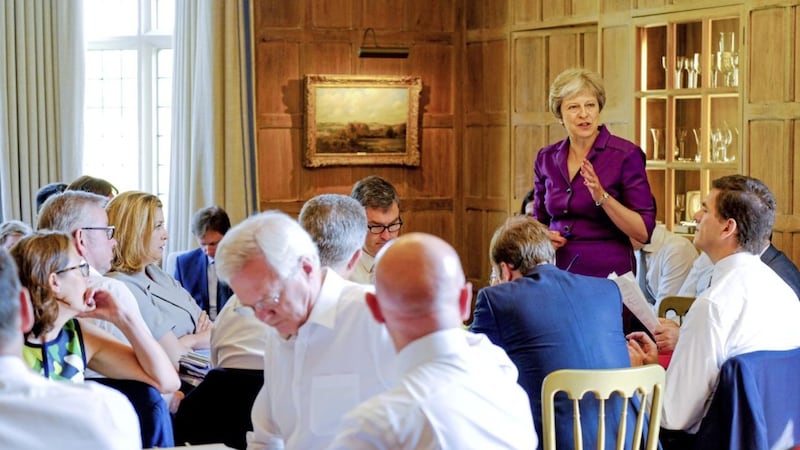Mervyn King, former Governor of the Bank of England and, like me, on the Leave side of the EU referendum campaign in 2016, was bang on the money when he expressed his concerns earlier this week: “We haven’t had a credible bargaining position, because we hadn’t put in place measures where we could say to our colleagues in Europe, ‘Look, we’d like a free-trade deal, we think that you would probably like one too, but if we can’t agree, don’t be under any misapprehension, we have put in place the measures that would enable us to leave without one’.”
Put bluntly, the government and opposition haven’t a clue what they’re doing at the moment. Liam Fox was put in charge of the Department for International Trade and tasked with securing new trade agreements with non-EU countries. Yet just seven months from our supposed exit date it looks like he hasn’t managed to muster a list with even one trade deal with one country. David Davis, the former minister in charge of the Department for Exiting the European Union, disappeared in a huff after the prime minister—who didn’t bother consulting him—came up with her own Chequers plan—which she drew up without anyone, even his supposed Euro-sceptic colleagues, thinking it might be a good idea to mention it to him.
Boris Johnson, the most useless foreign secretary in recent memory, was clearly looking for his own excuse to jump ship; he has one of those personality faults that doesn’t understand the concept of collective responsibility unless it is interpreted as everybody thinking and doing what he tells them to think and do. The fact that he still doesn’t—and it’s now 27 months since the referendum—have a costed, thought-through alternative of his own for exiting the EU is, it seems, neither here nor there for him. And Rees-Mogg isn’t much better. Instead of roughing-up the prime minister—who is very easy to rough up because she hasn’t a clue about anything—he should be offering up a plan around which his colleagues can gather. But, like Johnson, he doesn’t give a damn.
For them, and for a decidedly odd cabal around them, this is about reshaping the Conservative Party in their image rather than getting a deal that actually works. They have been helped by the monumental stupidity of Jeremy Corbyn who, having no idea where to place his party, doesn’t place it anywhere at all. He had an opportunity—for the sake of the entire country—to help Theresa May produce and deliver a Brexit deal which the EU could have bought into. But he didn’t do that.
At the most critical moment in our history since 1939/45 we have all—and I really do mean all of us—been shafted by Parliament. They have made a dog’s dinner. Conservative and Labour are divided and, to all intents and purposes, leaderless. Even if May falls and Labour win the subsequent election, Corbyn doesn’t have a plan. He couldn’t go to the EU negotiators and say, ‘give me an extra few months, maybe a year, to come to you with an agreed government position.’
Which is why, I think, the idea of a People’s Vote (PV) has gained so much traction. And yet a vote on the ‘final deal’—which is what I think PV supporters are after—won’t, in fact, resolve the ongoing dilemma. Even if a considerable majority rejected a final deal, Parliament still has to honour the 2016 result and remove the UK from the EU. The only way to overturn the 2016 result is with a second referendum on EU membership; and if you think the first one was divisive and unpleasant I can tell you that it would look like a mere Sunday School picnic compared to a second one.
The 2016 referendum was never just about EU membership. It was about the much bigger question of what the UK is; what the Union means; what unites the people; what our role would be on the world stage if we weren’t in the EU; if the UK, in its present form, will survive, irrespective of EU membership; and how we govern ourselves. That’s the debate I wanted in 2016. It’s the debate I argued for. Sadly, as we now know, that wasn’t the debate we had: instead, it descended into Project Fear versus Project Delusion.
I suggested in July 2016 that we would probably end up with a second referendum. I think it’s now unavoidable. But if there is to be one, let us have a proper debate this time. Not fear. Not delusion. A proper debate about who we are and who we want to be.








